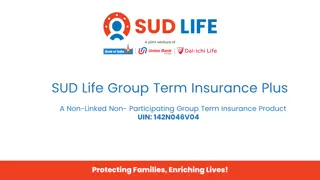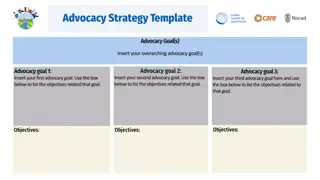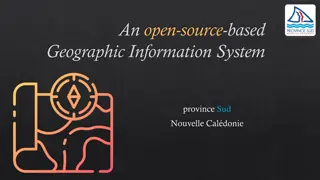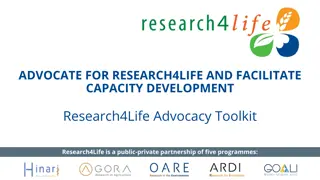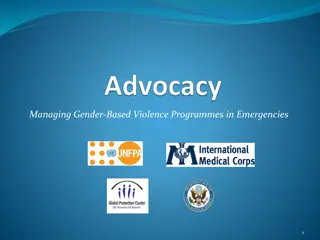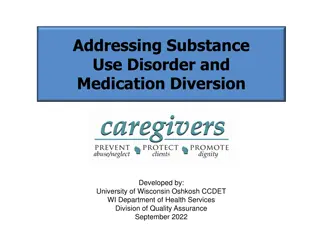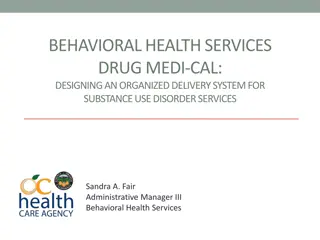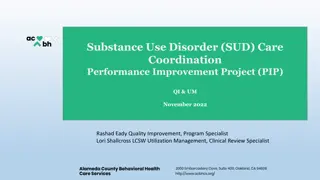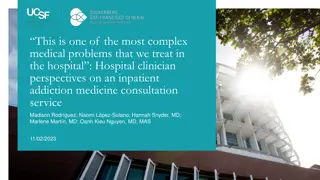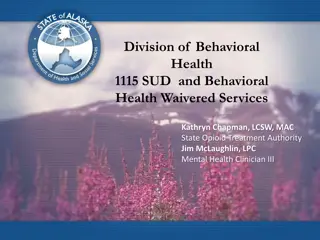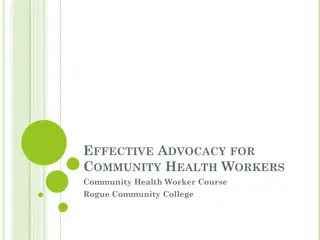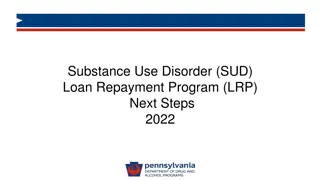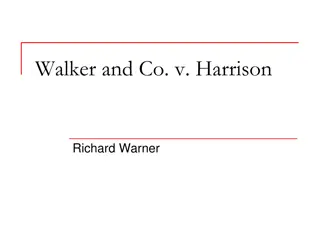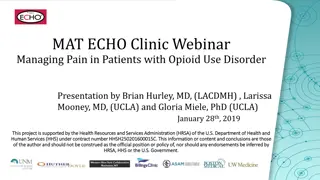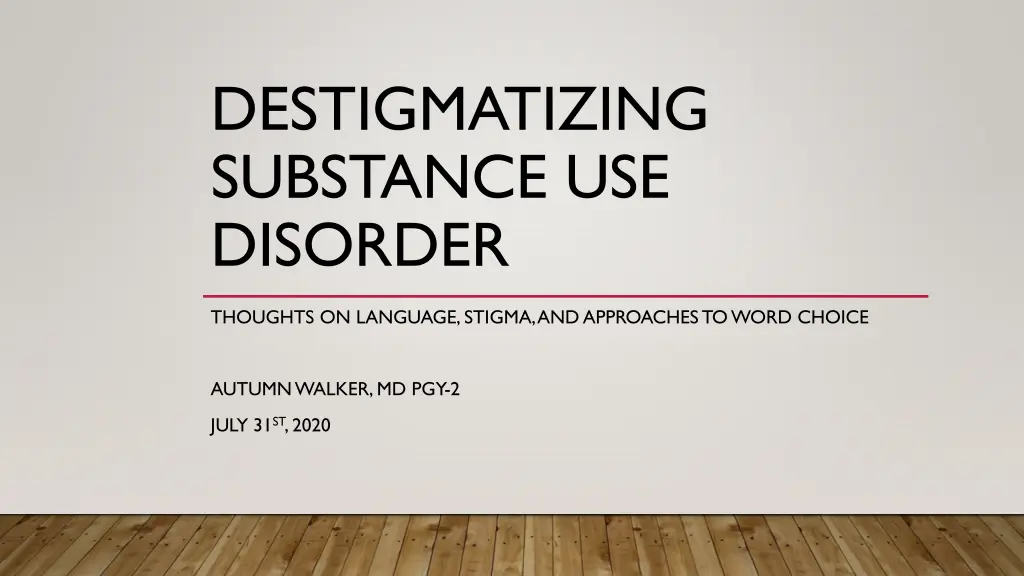
Understanding Language Choices in Substance Use Disorder
Explore the nuances in language selection for discussing substance use disorder, reflecting on varying viewpoints from expert sources and offering guidance to reduce stigma associated with substance use terminology. Delve into vignettes illustrating different language approaches in patient care, highlighting the impact of word choice on perception and treatment strategies.
Download Presentation

Please find below an Image/Link to download the presentation.
The content on the website is provided AS IS for your information and personal use only. It may not be sold, licensed, or shared on other websites without obtaining consent from the author. If you encounter any issues during the download, it is possible that the publisher has removed the file from their server.
You are allowed to download the files provided on this website for personal or commercial use, subject to the condition that they are used lawfully. All files are the property of their respective owners.
The content on the website is provided AS IS for your information and personal use only. It may not be sold, licensed, or shared on other websites without obtaining consent from the author.
E N D
Presentation Transcript
DESTIGMATIZING SUBSTANCE USE DISORDER THOUGHTS ON LANGUAGE, STIGMA, AND APPROACHES TO WORD CHOICE AUTUMN WALKER, MD PGY-2 JULY 31ST, 2020
SUBSTANCE USE LANGUAGE There is no unified consensus on language of substance use For example: ASAM recommends using addiction as a term to describe substance use, defined as a primary, chronic disease of brain reward, motivation, memory and related circuitry. (1) Patt Denning and Jeannie Little, authors of Over the Influence, advocate for avoiding the term addiction as it is nowhere in the U.S. or European diagnostic manuals of medical and mental health disorders. (2) Amidst these inconsistencies, my talk aims to provide guidance to language choice when serving those with substance use disorder with the goal of REDUCING STIGMA and the NEGATIVE CONNOTATIONS associated with substance use terminology (1) ASAM s comments on Changing the Language of Addiction 2016 (2) Denning P, Little J. Over the Influence: The Harm Reduction Guide to Controlling Your Drug and Alcohol Use. 2nd edition. Guilford; 2017.
VIGNETTE 1 Megan is a new patient to your clinic. She is a heroin addict who has been abusing heroin off and on for 4 years. She tries to use only clean syringes, but sometimes due to withdrawal and limited access to clean injection supplies, she occasionally uses dirty syringes. She is interested in learning more about opioid replacement for heroin abuse.
VIGNETTE 2 Megan is a new patient to your clinic. She has heroin use disorder and has been using heroin off and on for 4 years. She tries to use only new syringes, but sometimes due to withdrawal and limited access to unused injection supplies, she occasionally uses used syringes. She is interested in learning more about buprenorphine and methadone treatment today for heroin use disorder.
VIGNETTE COMPARISON Megan is a new patient to your clinic. She is a heroin addict/has heroin use disorder who has been abusing/using heroin off and on for 4 years. She tries to use only clean/new syringes, but sometimes due to withdrawal and limited access to clean injection supplies, she occasionally uses dirty/used syringes. She is interested in learning more about opioid replacement/treatment for heroin abuse/heroin use disorder.
FRAMING SUBSTANCE USE AS ABUSE OR ILLICIT Definitions of abuse : Definitions of illicit : Merriam-Webster Dictionary: a corrupt practice or custom or improper or excessive use Cambridge Dictionary: to use something for the wrong purpose in a way that is harmful or morally wrong Merriam-Webster Dictionary: unlawful not permitted by Cambridge Dictionary: illegal or not approved of by society Consider using substance use as preferred term, and avoiding abuse term in all contexts. Consider using non-medical or non-prescribed drug/substance use to remove the implication that drug use behavior is shameful, illegal, disapproved of
STIGMATIZATION IN HEALTH CARE DISCOURAGES ENGAGEMENT AND WORSENS OUTCOMES Stigmatizing terms ISOLATE patients from care, and serve to separate patients from providers Labels MINIMIZE patients to their health conditions and prevent seeing and treating them as whole people Stigmatization worsens health outcomes.
STIGMA REDUCTION CAN BE FACILITATED BY NON-JUDGMENTAL LANGUAGE Try this Substance use, non-prescribed use, non-medical use Person who uses/injects drugs Person with physiologic/psychologic dependence on _ Person who has stopped using drugs Person disagrees Treatment has not been effective/chooses not to _ Person s needs are not being met Currently using drugs No longer using drugs Positive/negative drug screen Used/new or unused syringe Pharmacotherapy, treatment Instead of this Abuse, misuse, problem use, non-compliant use, illicit Drug user/abuser, suffering from addiction, has drug habit Addict, alcoholic Clean, sober, drug-free, ex-addict, former addict Lacks insight, in denial, resistant, unmotivated Not engaged, non-compliant Drug seeking, manipulative, splitting Dirty, fallen off the wagon, relapse, setback Stayed clean, maintained recovery Dirty/clean urine Dirty/clean needle Replacing one drug for another, medication-assisted
SUMMARY AND ASKS AVOID the words abuse, illicit, and terms that make SUD special/unique DO USE clear, straightforward, non-judgmental language Ensure discussion of patient and documentation uses appropriate, clear and stigma-free language that NORMALIZES substance use disorder as a medical condition Allow for autonomy. Our role is to educate patients about the risks and benefits of substance use and support them through their decisions to use and not use with acceptance and compassion.
THANK YOU! Dr. Burkhardt for mentorship and guidance To you all for implementing change in your practices to reduce stigma!

